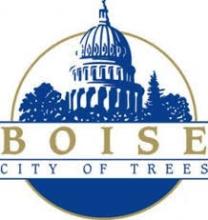Boise to Collaborate With BSU and Highway District For Downtown Fiber
Boise, the Ada County Highway District (ACHD), and Boise State University (BSU) have entered into an agreement to deploy fiber along a busy downtown Boise corridor. The high-speed lines will supply connectivity to a new building BSU intends to lease as a facility for Computer Science Department students. The fiber will also connect the BSU Bookstore.
The city will use the fiber to connect its City Hall and a Police Department substation located on the BSU campus while ACHD will add this fiber line to its current fiber network to control traffic throughout the city.
According to an Idaho Statesman article, the city has been installing conduit on campus, connecting it to ACHD conduit situated in the downtown core during the past year. Conduit installation cost the city approximately $47,000; BSU will now install fiber in the conduit at a cost of approximately $75,000. ACHD will contribute a section of its own conduit to complete the connection and will provide the permits to install the fiber.
When deliberating the joint venture, Boise leaders considered the economics and the future possibilities of the presence of the fiber. From the Statesman article:
“Providing the same data connectivity from a telecommunications provider would cost each agency close to $36,000 (per) year,” deputy city attorney Elizabeth Koeckeritz wrote in an Aug. 20 memo to the City Council. “By working together to connect these four locations, the (return on investment) is less than one year.”
At some point, Reno said, the city wants to connect the Boise Depot, the original railroad depot on the Bench south of the BSU Campus that the city owns and rents out as a venue for business meetings, weddings and other events.
This agreement will allow each entity to own one-third (48 strands) of the entire fiber line (144 strands). The city will continue to own the conduit that is in place and will own all newly-installed conduit and vaults located on city property or in the ACHD rights-of-way; any conduit installed on University property will belong to BSU.



